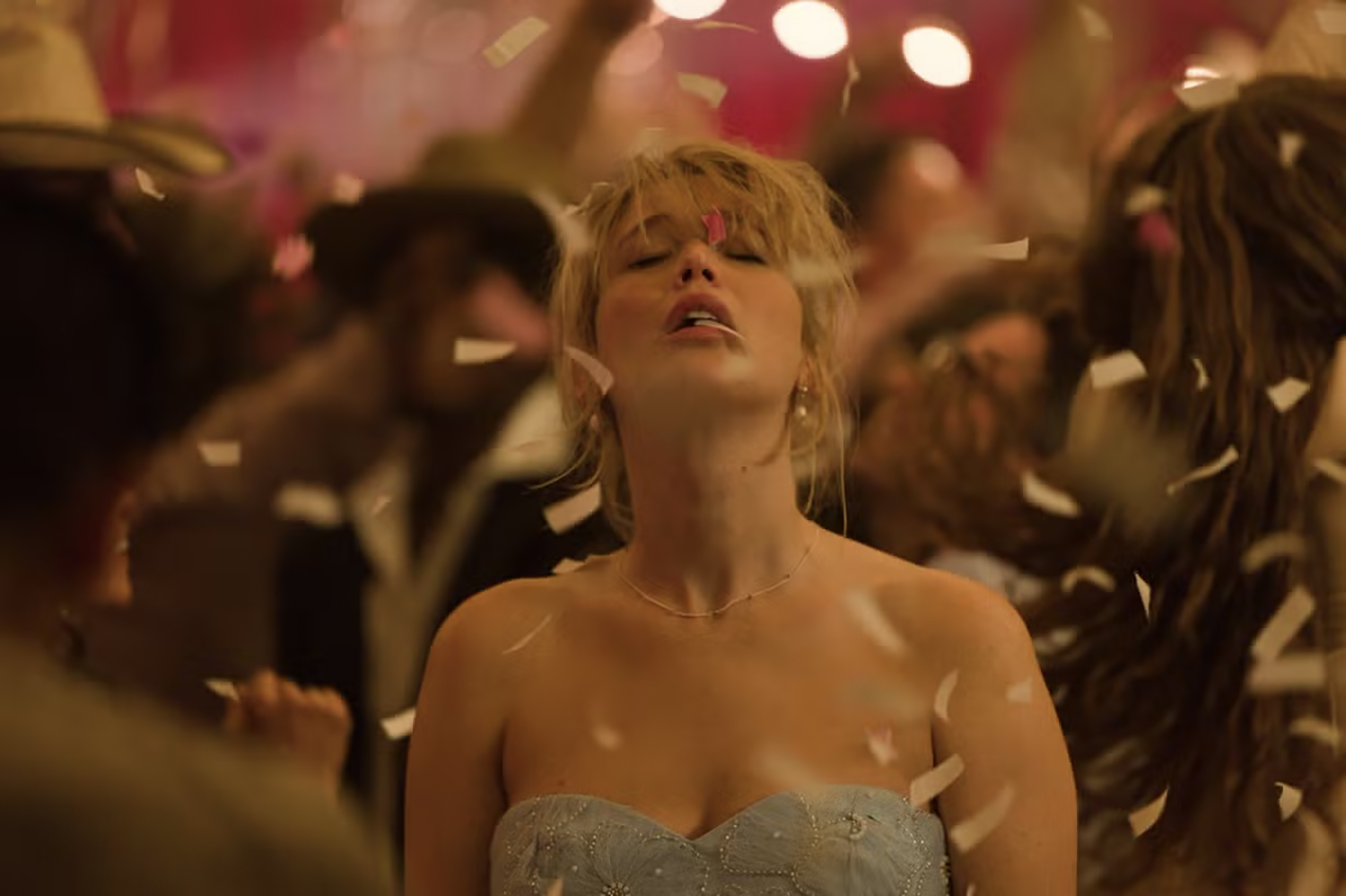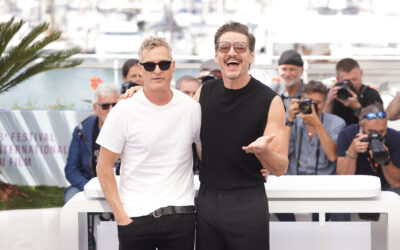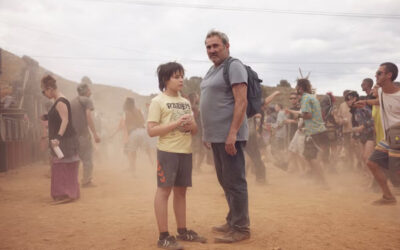by Alexandra I. Mas
Heir to the bucolic American films steeped in country music and lyrics rooted in folklore, Die My Love subverts the pastoral ideal. Here, wide open landscapes become a suffocating cage, the perfect stage for existential stasis. Characters dissolve into the summer light, merge with the tall grass — everything beautiful turns unbearable. The camera is almost olfactory, if such a thing can be said, you can feel the breeze rustling through the leaves, the scent of the flowers, the heavy air, the dust clinging to the old house. The sex scenes are like the storm, wild, visceral, primal, and yet never vulgar. Bodies tense, vital, moved by instinct rather than choreography. There is a feral grace, an intensity that pulses with sensuality, and it all passes in a flash, a fleeting glimpse of joy, gone before it can be held. This brief euphoria is the prelude to an emotional downfall.
Forget the Jennifer Lawrence of X-Men and The Hunger Games — this role seems made for her. She burns here: luminous, unpredictable, a woman on the edge of herself, caught in the spiral of a destructive psychosis. Under Lynne Ramsay’s direction, Lawrence reveals a dramatic power we had almost forgotten she possessed. She is both ferocious and fragile, monumental and wounded.
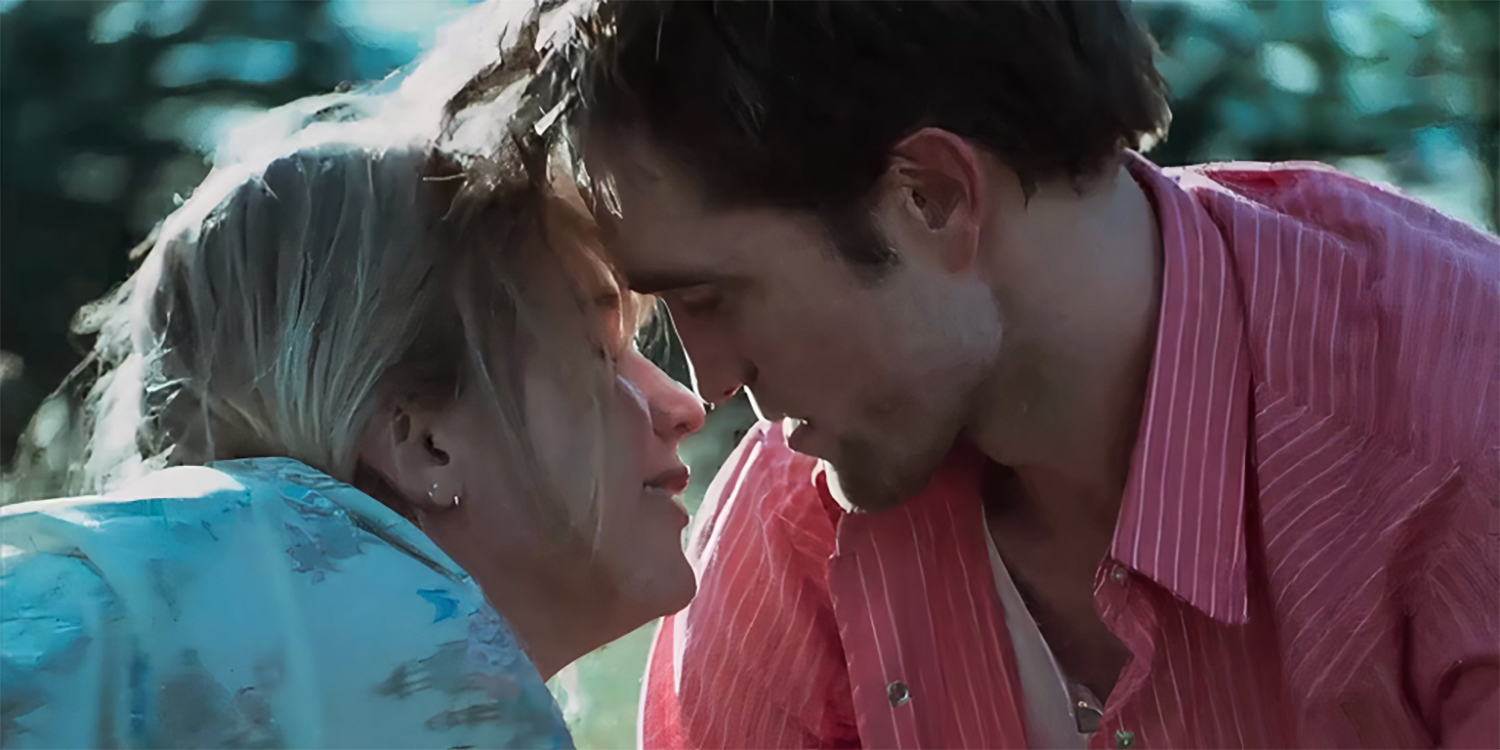
What might begin as a familiar story — the quiet disintegration of a couple — becomes instead a furious meditation on life, rage, and the refusal to fit the mold of the suburban ideal. This isn’t just the American housewife unraveling; it’s the collapse of a Western archetype.
Opposite her stands a quietly remarkable Robert Pattinson — mature, nuanced, devastatingly restrained and achingly precise in his act. As the disenchanted husband, he doesn’t meet her chaos with violence, but with distance. Where she screams, he barely murmurs. Where she runs, he lags behind. Her wildness crashes against his passivity, her desire to feel everything runs headfirst into his numb resignation. The passion that once tethered them is threadbare, stretched thin, and finally lost in the vastness of too much.
“I’m stuck between wanting to do something and not wanting to do anything,” says Grace (Lawrence), her voice caught between desperation and detachment in the middle of an ordinary boring party.
The camera avoids them, elusive, as if it both longs to witness and shies away. Only in the most intense moments does it dare draw near, intimacy earned through crisis. The fragrance of wildflowers morphs into the stale smell of American motel carpets. The taste of a birthday cake turns synthetic. Earth, metal, blood, and betrayal all mingle in the mouth. The night air is thick with the scent of breakdown, the bitter perfume of a summer gone wrong.
“May we live long and die out.” The dice are cast. The woman who once dreamed of becoming a writer in an idyllic Montana country-house will never emerge. The novel will remain unwritten. Boredom won’t simply dull her, it will consume her.
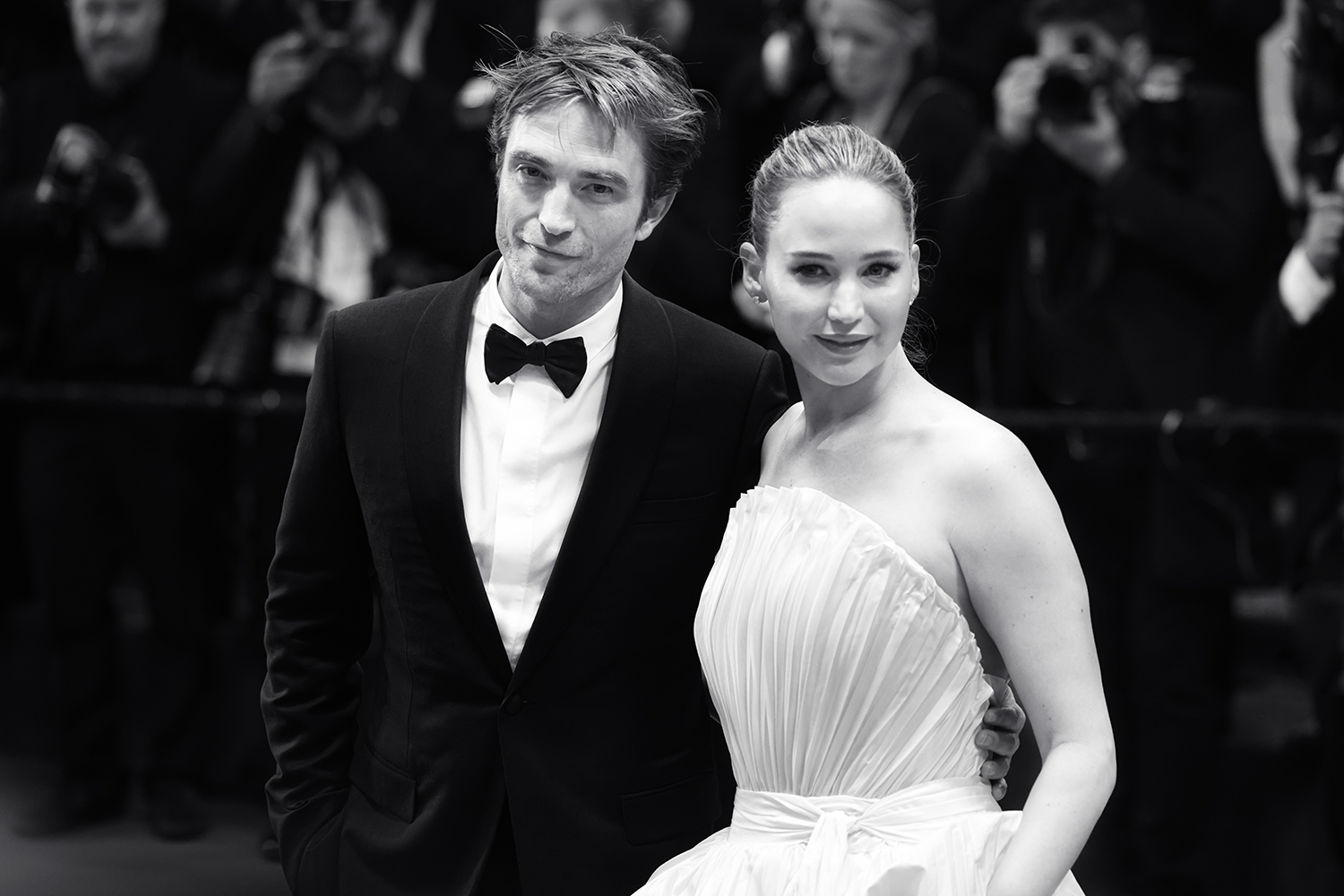
Jennifer Lawrence and Robert Pattinson in Dior, Cannes Film Festival 2025, photo by Marco Tassini
Since 2010, when she was barely twenty, Jennifer Lawrence has been more than just a rising talent. Her breakout in Winter’s Bone earned her a first Oscar nomination and announced a new kind of actress — grounded, radiant, instinctive. Her flawless features and physical presence launched her into superstardom through superhero roles, making her a generational icon, a mantle she carried with grace off-screen as well. Lawrence quickly became one of Hollywood’s most outspoken voices, with bold stances on politics, environmental advocacy, and feminism. At only twenty-two, she won the Best Actress Oscar for Silver Linings Playbook, confirming her rare emotional range. Her next project, we now know, will see her directed by none other than Martin Scorsese, embodying the legendary Ava Gardner in a biopic on Frank Sinatra, played by Leonardo DiCaprio.
Opposite Lawrence, Robert Pattinson continues his quiet metamorphosis into one of the most compelling actors of his generation. Far from the teenage icon of Twilight, he has steadily carved out a path defined by bold, auteur-driven choices, from the existential drift of The Rover, to the chaos of Good Time, and the haunting surrealism of The Lighthouse. In Die My Love, he delivers a masterclass in restraint. As the husband undone by his wife’s unraveling, Pattinson plays not the brute, but the bystander, passive, loving, lost. His stillness, his quiet gravity, offers the perfect counterpoint to Lawrence’s fire, together, they draw the map of a love too fierce to survive.

Robert Pattinson in Dior, Cannes Film Festival 2025, photo by Marco Tassini

